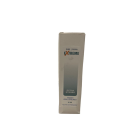Going to Bed with Wet Hair: Myths, Truths and Tips for Night Care
Many people wonder whether sleeping with wet hair is really harmful. In this article we look at the most common myths, the truths supported by scientific explanations and some useful tips for protecting your hair at night.
Common Myths about Sleeping with Wet Hair
Myth 1: You get sick if you go to bed with wet hair
One of the most widespread false myths claims that going to bed with wet hair causes colds or flu. In reality, these illnesses are caused by viruses and bacteria, not by damp hair. Sleeping with damp hair may be uncomfortable, but it is not a factor that causes respiratory infections.
Myth 2: Hair Always Breaks When Combed Wet
It is true that hair is more brittle when wet, but combing it gently does not necessarily damage it. Using a wide-tooth comb or a brush specifically for wet hair minimises the risk of breakage. What should be avoided are overly aggressive handling or unsuitable tools.
The Truth about Going to Bed with Wet Hair
Increased Fragility and Mechanical Damage
When hair is damp, the cuticles lift and the hair fibre becomes more vulnerable. During the night, continuous rubbing with the pillow can cause split ends, knots and breakage.
Possible Development of Moisture and Microorganisms
Sleeping with wet hair can create a damp environment on the pillow and scalp, encouraging the proliferation of fungi and bacteria. In the long run, this may contribute to skin irritations or disorders such as seborrhoeic dermatitis.
How to Avoid Problems When Going to Bed with Wet Hair
If you have the habit of going to bed with wet hair, there are some steps you can take to minimise potential problems. Here's how.
1. Adequate drying before going to bed
The most important thing you can do is to make sure you dry your hair well before going to bed. Use a soft towel to gently towel-dry your hair, removing excess moisture. Avoid rubbing your hair hard, as this can cause breakage and damage. If possible, let it air dry for a while before going to bed.
2. Gentle Combing or Brushing
If you need to comb your hair before bed, do so very gently. Use a wide-toothed comb or a soft brush, starting at the ends and moving slowly up towards the roots. This will reduce the risk of breaking your hair.
3. Use of Protective Products
Consider using hair protection products such as light oils or serums. These products can create a barrier against moisture and help prevent damage to your hair while you sleep. In addition, some of these products contain ingredients that can nourish and strengthen your hair overnight.
The Benefits of a Proper Nighttime Hair Routine
Besides preventing damage, a well-structured night routine can offer numerous benefits for the health and beauty of your hair. Let's see what they are.
1. Deep Hydration During the Night
During sleep, hair products such as nourishing masks or oils can penetrate deeper into the hair, providing intense hydration. This is especially useful for those with dry or damaged hair, as overnight hydration helps keep hair soft, shiny and healthy.
2. Frizz reduction
Wet hair tends to become frizzy, especially if left to dry without any protection. Following an overnight drying and protection routine can greatly reduce frizz, making hair easier to manage in the morning.
3. Improved Nutrient Absorption
If you use specific hair growth or treatment products, applying them before going to bed can be especially effective. During the night, hair is more receptive to nutrients, which means that your treatments can work in depth, helping to improve hair health.
4. Reducing Thermal Damage
If you often use thermal tools for styling, such as straighteners or curling irons, adopting a proper nighttime routine can reduce the need to use these tools in the morning. Less heat means less damage to your hair, preserving its health and integrity.
5. Extending Styling Duration
A good night-time routine can also help keep your hair styled for longer. For example, if you have done a specific hair style or styling, protecting your hair with a silk band or night cap can help keep your look intact while you sleep.
6. Reducing Hair Loss
Well moisturised and protected hair is less prone to breaking or falling out. Maintaining a good night-time routine can therefore help reduce hair loss, especially if this is caused by brittleness or damage.
7. Prevention of Scalp Problems
As mentioned above, going to bed with wet hair can encourage the growth of mould and fungus on the pillow, which can cause scalp problems. Following a nightly hair-drying routine can help prevent these problems and keep the scalp healthy.
Conclusion: Taking Care of Your Hair at Night
In conclusion, avoid going to bed with wet hair is a good practice to keep your hair healthy and strong. Adopting a proper night routine not only prevents damage, but can also significantly improve the quality and health of your hair. Make sure to dry your hair well, comb it carefully and use protective products to maximise the benefits.
Taking care of your hair overnight is an important step in keeping it shiny and healthy, and by following these tips, you will enjoy stronger, less frizzy and more damage-resistant hair.
Did you like this article? Discover also Capillary Implants for Men: The Secret to a Natural Look.
Also discover our product: Men's Hair Prosthesis V-Loop 0.08-0.10 MM.










